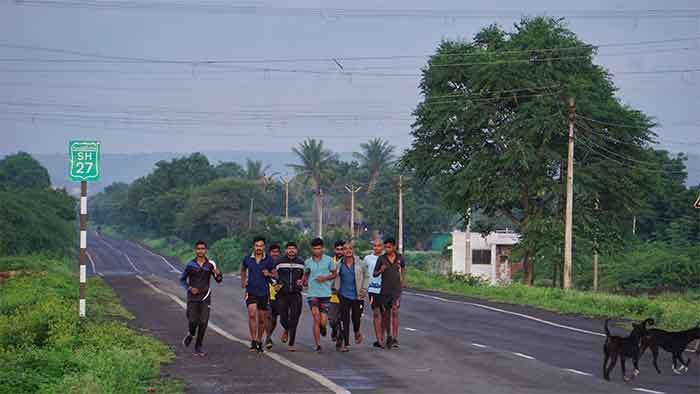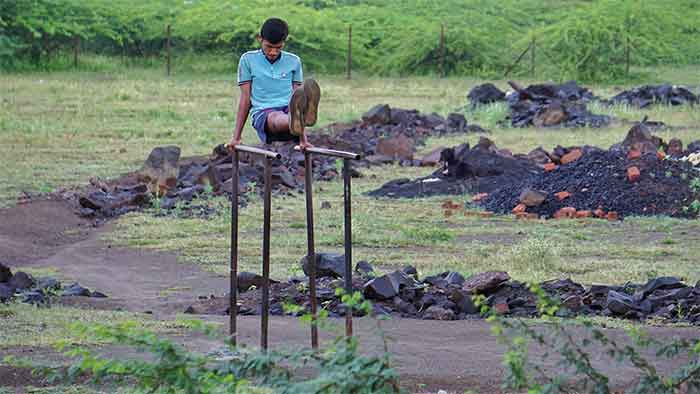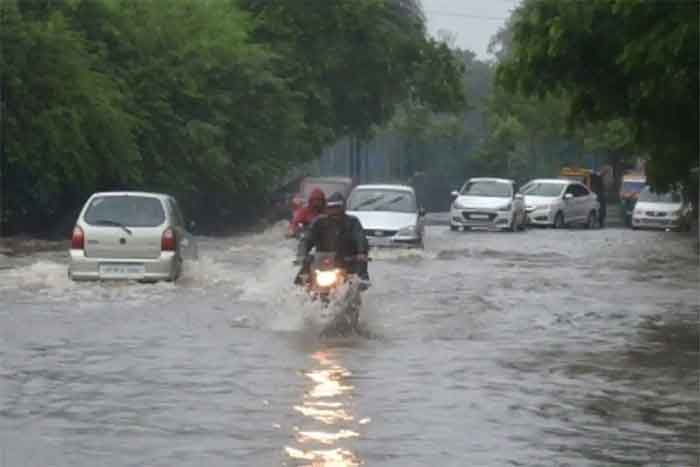With Indian Army recruitment exams halted for over a year and a half, several aspirants who had been preparing for years are faced with bitter disappointment at the lost opportunity to escape debt-induced poverty.

Nashik: Clearing the General Duty Soldier Exam to join the Indian Army is considered an aspirational, life-changing opportunity for young men across rural Nashik. Many youngsters in the Sinnar taluk of Nashik district start preparing for the exam as soon as they turn 17, giving them enough time to attempt the exam before they cross the cut-off age of 23.
But for almost two years, recruitment rallies have not been conducted owing to the COVID-19 pandemic and the resulting lockdowns. Due to this, youngsters have been unable to give the exam and worse still, many have crossed the age of 23, now making it impossible for them to ever join the Indian Army as a soldier.
Prathamesh Navase, who had been preparing for the exam for almost four years, lamented, “I have always wanted to work in the armed forces. However, this June I crossed the age limit of 23. I feel like I have been robbed of something. Had I given the exam and failed, it would have been different. But now when the rally is eventually conducted, I won’t even be allowed to participate in it.”
Navase is one of the many aspirants who feel like they have been robbed of the opportunity to not only join the Indian Army but also to overcome poverty and lead better lives.
 Sinnar, whose villages are primarily agriculture-dependent, is a highly drought-prone region. Young people are unable to rely entirely on agriculture or afford quality, urban education, leading to fewer job opportunities. The Maharashtra Industrial Development Corporation (MIDC) in Sinnar provides some temporary employment opportunities to youngsters for just six months, making it difficult for them to get by for the rest of the year.
Sinnar, whose villages are primarily agriculture-dependent, is a highly drought-prone region. Young people are unable to rely entirely on agriculture or afford quality, urban education, leading to fewer job opportunities. The Maharashtra Industrial Development Corporation (MIDC) in Sinnar provides some temporary employment opportunities to youngsters for just six months, making it difficult for them to get by for the rest of the year.
Due to the poor financial condition of their families, indebtedness and the lack of career opportunities, many young men start preparing for the Indian Army General Duty Exam very early on. And it has proven to be an effective route to escape deep-set generational poverty. In Nimgaon village alone, roughly 100 people serve in the Indian Army out of a population of 5,000.
Arrested dreams

The exam, which attracts thousands of applicants, is held four times a year in various districts across the country. The last recruitment rally was held in December 2019 in Mumbai. In this rally, there were 20,000 applications and only 800 made it to the next round. However, there has been no recruitment rally since then.
Explaining the importance of this exam and its impact, Rohit Sangle, who was recruited into the armed forces after clearing this exam, said, “Working for the armed forces is something that automatically induces pride in a person. Apart from that, the army also helps people improve their economic standing, so this is a big deal for children in villages.”
The overall impact it has on the development of a village is clearly visible in Nashik. Prakash Sanap, son of a daily wage farm worker, who couldn’t study much, is now educating his children in a good school. Before joining the army, he lived in a mud house, but today he has used his steady income to build a bungalow for his family.
Hence, it isn’t surprising that many are willing to give up several years in order to clear this challenging exam. Apart from basic health requirements like height and weight, aspirants are tested on several parameters. There’s a One Mile Run (roughly 1.6 km) to be completed in less than five and a half minutes, pull-ups, a qualifying test of balance and the 9 Feet Ditch. Preparing for these requires hours of dedicated practice, every day.
Navase, who recently crossed the cut-off age limit, said he is now preparing for BSF and CRPF exams. “However, in a BSF rally, the written exam happens first, and the physical examination happens later. This format will be a bit more challenging for me. And given the uncertainty of these exams I’m thinking about other career alternatives because I have already wasted four years preparing for the army exam,” he said.
A cruel twist of fate has denied Akash Tadge (23) his dream. A resident of a Gulwanch village in Sinnar taluk, Tadge has been wanting to get into the Indian Army since he was in Class 7 and has been preparing for it from an early age.
“I passed the exam in December 2019. When the results came out on February 11, 2020, I thought my dream had come true. I was going to join the Indian Army on March 23, but on March 21, the country-wide lockdown was announced. My joining date was postponed to November 23. But according to the rules of the Indian Army, if the joining has been postponed for more than 180 days, one has to go through the medical tests once again. The medical test revealed that I now weighed 84 kg, as compared to 73 kg at the time of recruitment. Now I was given 10 days by the army to lose 12kgs. For 10 days, I went hungry, drinking hot water and running 30 to 40 km each day. I lost ten and a half kgs, but it wasn’t enough. I was disqualified for not losing just one and a half kgs,” said a dejected Tadge.
“With immense grief, I returned home, empty-handed. Undeterred, I started preparing again. But there have been no recruitments for two years since the first lockdown and two months ago I crossed my age limit. Now I am trying to help my family by working at a dairy in the village,” he added.
Sadashiv Tadge (50), Akash’s father said that despite the fact that he was always busy at the farm, he would never ask his son’s help because he wanted Akash to focus on his training and pass the exam. “This is injustice. Akash and many youngsters like him had hoped to be recruited but both their hard work and time has been wasted,” he said.
Letters of protest
Suraj Sanap, a young leader of Prahar Students Union, who is also preparing for this exam, wrote a letter to the Chief Minister of Maharashtra, Uddhav Thackeray, and the Collector of Nashik about the issue.
He said, “One can’t help but wonder what would have happened if such a systematic deprivation would have taken place in the urban pockets of our country? When relatively privileged students who are appearing for NEET protest, they not only get all the media coverage but the face of opposition in India, Rahul Gandhi, tweets in support of them. However, when youth who barely have opportunities in this fissured unequal society are deprived, forget dailies, their protests don’t even make it to leading digital news media.” MLA Manikrao Kokate has also written a letter to the Maharashtra Chief Minister about the youth of Nashik.
As the pandemic recedes in the country, these youngsters in Nashik can only hope that the state won’t forget about the opportunities they were robbed of. They pray that some relaxations are announced for this year’s exam.
Vaibhav Sanap is a Nashik-based freelance journalist and a member of 101Reporters.com, a pan-India network of grassroots reporters.














































